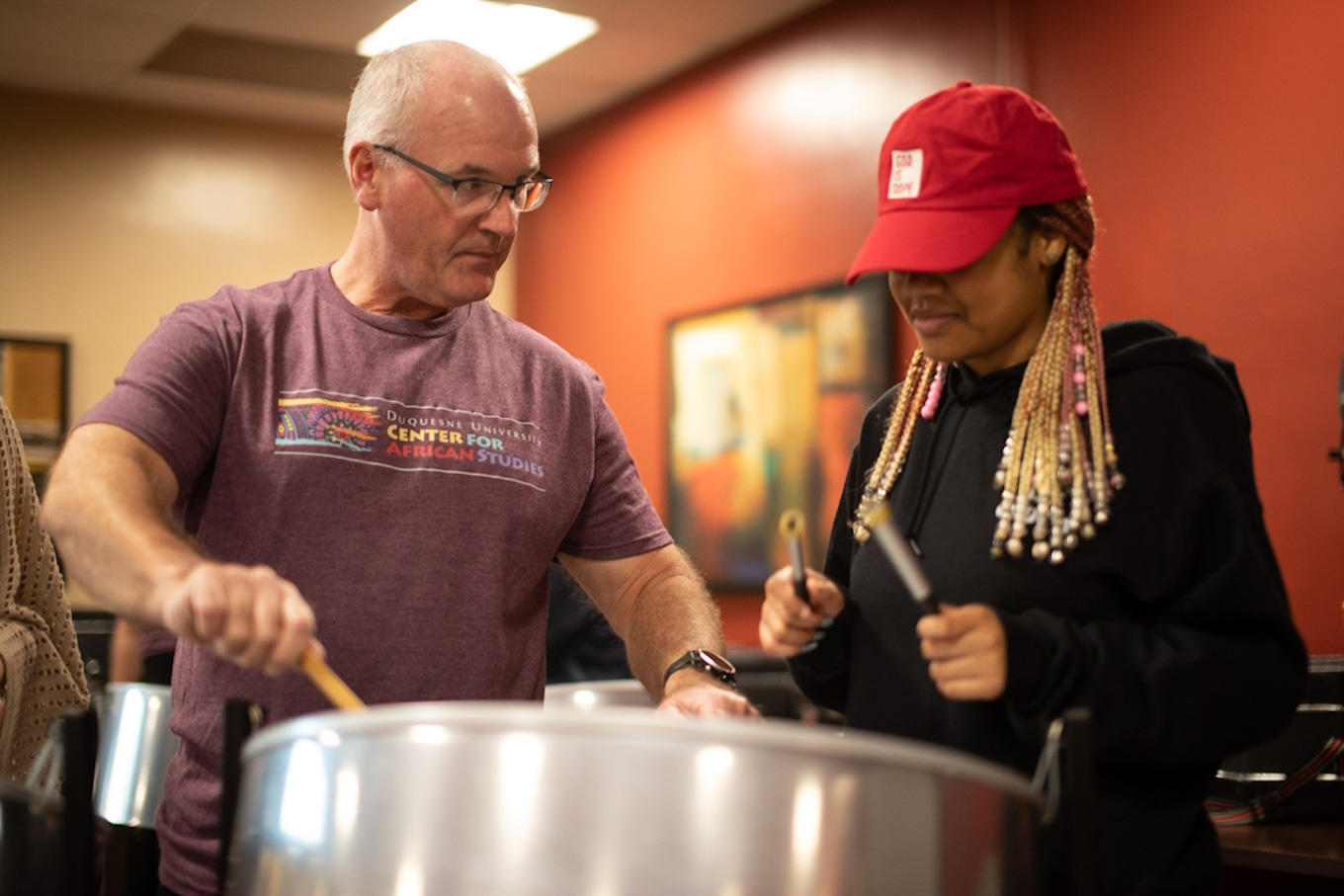Gain a Cross-Cultural Perspective
We offer a broad selection of courses on Africa that will provide you with a solid understanding of the many African traditions, cultures, and contemporary and historic issues.African Studies Major and Minor
The Center for African Studies offers a secondary major for any student. A second major can complement a first major in any other department. As a secondary major, it is not a "stand alone" major; which means, it must accompany another major.
Major Requirements:
- Complete 30 credit hours (usually 10 classes)
These courses must be in at least two disciplines cross-listed with African Studies - Take AFST 150: Introduction to African Studies or EQ 104: Do You Know the Real Africa
- Fulfill a study-abroad program in Africa OR a 3 credit internship
(The internship must deal with Africa, the Diaspora, or similar subjects, and be approved by Dr. Boodoo, the African Studies Director.)
Additional Information
Students may seek permission to:
- Substitute one course not cross-listed with the African Studies program.
*The course should include identifiable content devoted to the study of Africa, and the student must be able to do a significant project or assignment based within the field of African studies. The student must submit a short proposal to the Center for African Studies by mid-term of the semester in which the course is taken, explaining how the student plans to fulfill the requirement. This proposal must be approved and signed by the course instructor - Take one directed reading course for AFST credit
For a complete list of global health course offerings, please see the University Catalogs.
Minor Requirements:
- Students must take a minimum of 15 credits in African Studies courses (usually 5 classes)
- One class (3 credits) must be an interdisciplinary credit (classes outside of their
departmental major)
Students completing the minor must have taken courses from at least two different disciplines. - Take AFST 150: Introduction to African Studies or EQ 104: Do You Know the Real Africa
Additional Information
- The minor is available to all students and classes for the minor may count towards another minor/major.
- Courses that have a minimum of 25% African focused content can qualify as African Studies courses.
- Students can petition Dr. Boodoo, the director of the Center, to have courses not currently listed as African Studies count toward the minor. (e.g. a directed readings course or a course taken while studying in Africa)
For a complete list of global health course offerings, please see the University Catalogs.




